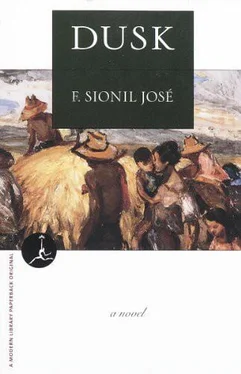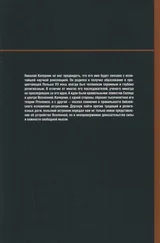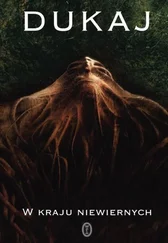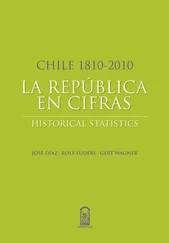When they reached the village, only Ba-ac was at home. Istak’s mother was in the creek washing and his brothers were out in the fields. They waited at the foot of the stairs till Ba-ac came down with a large wooden basin filled with warm water. He strained down the flight, his left hand pressing the heavy basin against his waist.
When they were through washing, Istak told him what Capitán Berong had said. The old man listened calmly; he was easily given to anger, but now there was stoic patience in the shrunken face. After a while, Ba-ac said dully, “I will go to town and beg the new priest to let us stay for another year. If we move out now, how will we live? We have but little grain left. If it could be the next harvesttime, we might prepare.”
“He wants us to leave immediately, Father.”
“One more year will not make a difference,” Ba-ac said. “We wall be able to bring along some chickens and we will be able to uproot this house properly. And your mother can weave some lengths of cloth. Don’t tell your brothers, or your mother.”
“Let me come with you,” Istak said. I can speak his language — he wanted to add, but did not.
“You stay here,” Ba-ac said. “I do not think the new priest likes you, else he would have retained you, is that not so?”
Istak did not reply. His father had confirmed what had long lain in his mind. And yet it was so obvious in the manner with which the priest spoke to him, as if he were a mindless child good only for kitchen chores. As the new priest had said, he had had his fill of “ la sopa boba .”
The old man hurried to the house, and when he emerged he wore his white starched pants and white collarless shirt. He even seemed to be in good humor. “I will also ask him to take you back,” he said brightly.
“He will not permit it, Father.”
“I will beg,” Ba-ac said. “Beggars cannot be proud. I will get on my knees …” His voice trailed off.
It was a long walk to town — a full three miles of April dust and a sun which bore down on everything. The catuday and marunggay trees along the trail were powdered with dust. At this time of the year, the frogs found refuge in the deep cracks in the earth, where they were sought and speared with barbed hooks.
Ba-ac reached the town shortly before dusk had settled. Soon they would be indistinct — the grass-roofed houses in yards enclosed by bamboo fences, the old houses of stone with tiled, high-pitched roofs and sash windows — the homes of Cabugaw’s rich — and at the edge of town, the big church, its limestone walls painted creamy yellow, its belfry higher than any tree in the village. The streets were empty, save for a few stray goats and pigs. Near the church, across the wide plaza scraggly with dying grass, was Capitán Berong’s big brick house. His daughters were seated in the iron chairs on the wide lawn over which stood an old acacia tree, its trunk huge. The sisters would probably grow into spinsters unless they went to Vigan, or unless some rich trader came and saw them, for there were no young men in Cabugaw rich enough or intelligent enough for them.
The churchyard was not yet cleared of the litter of the revelry which marked the new priest’s birthday, the palm leaf and banana wrappers of rice cakes, the orange peels and frayed paper wrappings of candies, the blackened remnants of rockets and firecrackers. At the door of the kumbento , a young acolyte was scrubbing the tile floor. He recognized the old man, so he let him in.
How many times had he been here when Istak still served in the sacristy and yet had never set foot beyond the tile porch into the sanctum within. This massive building — his grandfather and his father had helped build it; they had fired the brick for its walls, and the lime that set the mortar, they had gathered it from the sea. He had seen the scars on his father’s back, what the bull-whip had etched permanently there, like harsh lines drawn by the harrow on the land, and though he was very young then, he could never forget, and remembering it, Ba-ac felt a loathing for the building slowly coil in him. He pushed the heavy wooden door and stepped into an alcove, dimly lighted by an oil lamp. In a while, night would engulf the town and soon, one of the acolytes would climb the belfry to toll the Angelus.
Beyond the alcove, as the boy at the door had told him, were the stairs, and up the stairs of huge solid planks were the priest’s quarters, forbidden to all of them unless they were called. He went up the flight, apprehensive that no one had announced his coming. The walls were lined with heavy velvet drapes, broken only where a sash window was open to the oncoming evening. He was in a sala with some cane furniture, and beyond it, another door. In a voice which quavered, Ba-ac announced himself. “There is a man, Apo. There’s a humble servant entreating you for an audience …”
No reply. He wavered, wanting to return downstairs to the porch to ask the boy to announce him, or wait there till the priest made his appearance. But gathering more courage, he pushed the door ajar; it opened to still another room, better lighted than the alcove below. The last light of day shone on the mahogany floor and washed the walls with tawny light. A tall cabinet of shining wood with a glass front stood in a corner, a monumental piece of carpentry, exquisitely carved. On the walls were huge pictures of priests in various postures of supplication, their faces upturned and swathed with holy light. This is where my son lived, he told himself; he saw this every day, this splendor, and for a moment, he wondered if Christ would be comfortable here. He felt smaller now, and when he rapped on the door, he did it quietly lest he disturb the opulent silence. Barely above a whisper, he spoke in Ilokano, knowing that all the Augustinians could speak the language. “Señor, one of your lowly servants is here to beg a favor from you …”
No stirring beyond the heavy door. Then a voice called from within. “Come in — since you have already gotten this far.”
Ba-ac pushed the door ajar and peeped in: another room except that the floor seemed shinier. Statues of saints — he recognized San Lazaro immediately — stood on pedestals. Barefoot, he barely lifted his feet so that he would not make any noise. A chandelier dangled from the rose-colored ceiling adorned with cherubs in pink, and as a slight breeze blew in from the open window, the many-faceted glass prisms tinkled.
The young priest was kneeling before a low cabinet; he was not wearing his soutane but was dressed only in long-sleeved underwear. On the floor were a silver crucifix and the chalice which he was cleaning with a stained piece of cloth. Ba-ac knelt before the priest, grasped his hand, and kissed it. He did not rise, he could not rise until the young priest commanded him to.
“Who are you and what do you want?” the young priest asked in heavily accented Ilokano. He was muscular; his hirsute arms and his neck were pale, as were his hands; his face, which was exposed to the sun at times, was ruddy; there was a quality of malevolence in his eyes, and as he stood up, he lifted the big crucifix and appraised it in the fading light. The silver gleamed.
“I am the father of Eustaquio, Apo,” Ba-ac said, still kneeling, his voice quavering as recognition came swiftly. His old eyes were not mistaken. This was the same young priest who had condemned him to his fate, who had — although he did not wield the knife — cut off his hand. It was the same face, deceptively young and kind in countenance; in the past five years — had it really been that long? — he had not aged one bit. There was something youthful about him, perhaps eternal as Satan is eternal, and now Ba-ac was face-to-face with him again, and this time he was again begging as he had done in the past, proclaiming his innocence in a frightened and distraught voice which was not heard. Yet it was possible that a man could change, as men everywhere have changed when confronted with the evil of their ways or a superior moral force. Perhaps, this was a new man — a vain wish, knowing it was he who had sent Istak away — his poor, patient, ever-forgiving son.
Читать дальше












